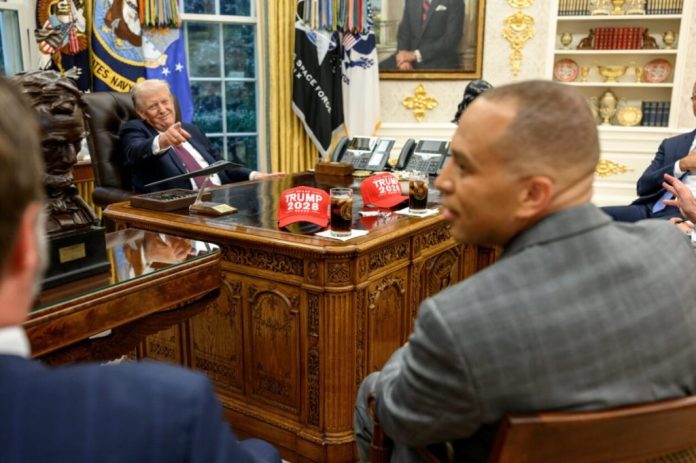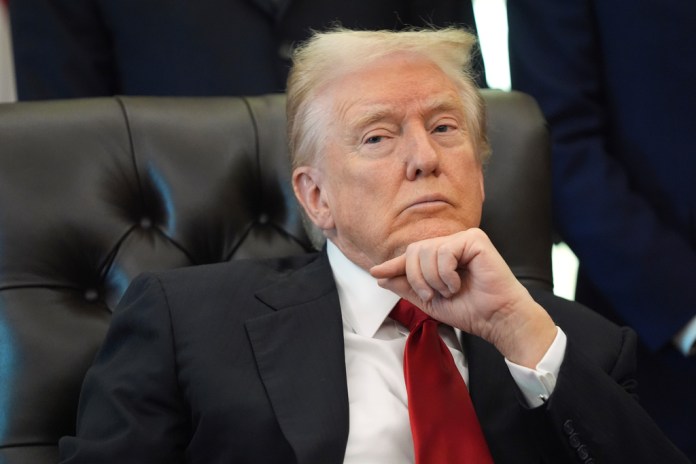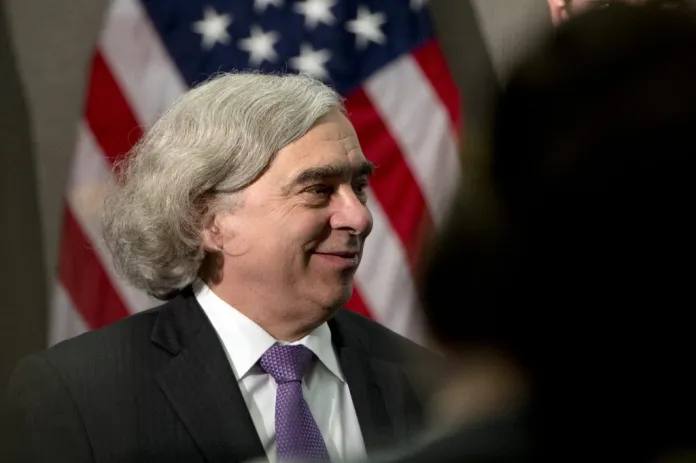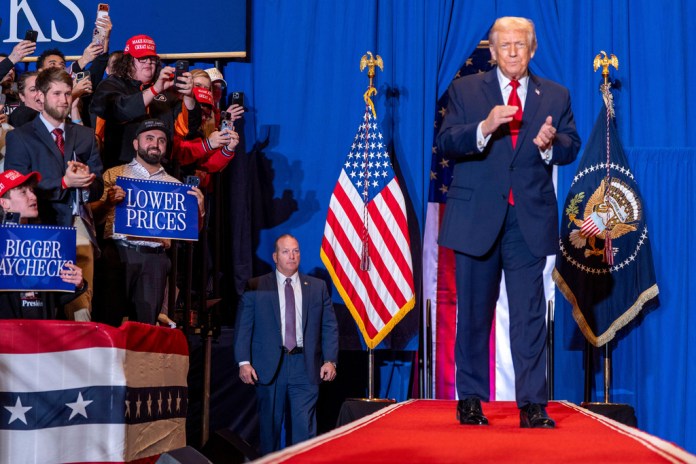Can Trump contain China without a war? – Washington Examiner
The article discusses the notable foreign policy challenge the United States faces regarding China, particularly in the context of Donald Trump’s upcoming presidency. It emphasizes that the ongoing confrontation with China spans diplomacy, trade, adn military engagement, raising concerns about potential military conflict. The piece argues that the Chinese government, under President Xi Jinping, aspires to supplant the U.S. as the dominant global power, intensifying competition in various regions, including Taiwan and the South China Sea.
As the Trump management prepares to take office, it is indeed predicted that a more aggressive stance against China will be adopted, given the appointment of key figures with strong anti-China positions—such as Marco Rubio for Secretary of State, Mike Waltz for National Security Affairs, and Elbridge Colby for Undersecretary of Defense for Policy. These appointments suggest a comprehensive approach to countering China’s military advances, intelligence operations, and cyber threats.
Though, the article also raises doubts about the United States’ capacity to effectively counter the Chinese challenge, citing issues such as intelligence vulnerabilities and taiwan’s apparent lack of serious defense readiness. It highlights that any military confrontation stemming from Taiwan’s defense remains uncertain and may hinge on how the U.S. and its allies respond to potential Chinese actions. the piece underscores the complex and urgent nature of U.S.-Chinese relations as Trump reassumes power, with the risk of escalating tensions looming.
Can Trump contain China without a war?
Confronting Communist China constitutes the preeminent foreign policy challenge of the second Trump presidency. The United States is already involved in a confrontation with Beijing on several fronts, including diplomacy, international trade, and intelligence operations. We are not at peace anymore. Whether this gray-zone conflict becomes a direct military confrontation, with the distinct possibility of a Third World War, represents the key question as Donald Trump reenters the White House shortly.
It must be stated up front that the Trump administration only controls some of the variables in the equation of the trajectory of U.S.-Chinese relations over the pivotal next four years. It’s taken as a given by many prominent Western defense thinkers that 2027 represents Beijing’s jump-off for direct confrontation against the U.S. and its allies to determine who controls the Western Pacific and East Asia for the rest of this century.
Even if that calculation is incorrect, it cannot be doubted that China, led by President Xi Jinping, doesn’t seek what communists once termed “peaceful coexistence” with the U.S. During the dozen years of Xi’s increasingly authoritarian rule over the Chinese Communist Party, and the world’s biggest country, Beijing’s view of relations with Washington has shifted to replacing America as the global hegemon. Just two decades ago, naive pundits who strangely had the Pentagon’s ear explained that the U.S., led by its mighty military, would establish the global “rules set” indefinitely. That fantasy was squandered in the deserts of the Greater Middle East in the 20 years following the 9/11 attacks on our homeland. Now, it’s China that aspires to control that “rules set” for the rest of this century.
Can the People’s Republic of China pull that off? It must be understood that although this conflict for global hegemony focuses heavily on Taiwan and the South China Sea, the U.S.-PRC rivalry has become a worldwide competition. As the People’s Liberation Army expands in size and power as never before, bolstered by Beijing’s robust intelligence services, its reach projects CCP power and influence to new places. Already, PLA warships are appearing all over the world to show the red flag, in a challenge to U.S. hegemony and influence.
The Pentagon’s newly issued annual report on Chinese military power makes plain that Beijing’s navy isn’t just the world’s biggest — its quality is rising commensurately with the number of new hulls. Moreover, those vessels are deploying farther away from China’s home waters than previously seen, and they are doing so with alarming regularity. The new launch of an amphibious assault vessel that’s technologically on par with modern American “amphibs,” able to project naval power far from China, demonstrates the PLA’s strategic thinking. The sudden appearance of cutting-edge Chinese jet combat aircraft has shocked Western air forces. When you add the recent unveiling of major Chinese spy bases in Cuba, large-scale signals intelligence collection facilities aimed at the U.S. (these replace Soviet SIGINT bases that were located in Cuba during the Cold War), Beijing’s aim to challenge American power even in the Western Hemisphere comes into focus.
What does the Trump administration plan to do about this global Chinese challenge? We can make educated guesses based on the president-elect’s appointments. The new White House will possess several serious China hawks in top national security jobs. If personnel is policy, per the cliché — as Stalin put it, cadres decide everything — then the second Trump administration is poised to push back against Beijing diplomatically, economically, and even militarily if needed.
The highest-ranking China hawk in the new White House will be Sen. Marco Rubio (R-FL) as the secretary of state. Rubio brings extensive national security experience to Foggy Bottom, having been immersed in foreign policy matters since entering the Senate in 2011. Rubio brings long service on the Senate Intelligence Committee, including as its top Republican. Rubio will take over the State Department “prebriefed,” as the spies say, about everything our intelligence community knows about the China threat. A trenchant critic of Beijing and its Red regime, Rubio stated in 2022:
In Beijing, we are faced with an adversary that has a nuclear arsenal but also control of critical supply chains and an influence over global markets not even the old Soviet Union had. For decades, the members of the Chinese Communist Party hid their true ambition to remake the global order and become the world’s most powerful nation. But they don’t hide it anymore.
They don’t believe in concepts such as “universal rights,” “global engagement,” and “international law” — all these terms that are thrown around. Because their geopolitics reflects human nature. They believe in raw power. They believe because they are a big country, their smaller neighbors must be their tributaries. And they believe the only way for them to become more powerful is to make others weaker, particularly America.
This is the raw, unvarnished truth about the Chinese Communist Party. And the biggest geopolitical blunder of the last quarter-century was the naive, bipartisan, widely held belief that free trade and globalization alone could change all of this and, in particular, could change them.
Such plain-spoken rhetoric indicates that Rubio, as America’s top diplomat, won’t be seeking to placate Xi and his party bosses as previous American leaders have done. Since Rubio seems to be a shoo-in for approval by his fellow senators, the State Department is in for a great deal of change, not just regarding China, in the new year.
The same can be said about Rep. Mike Waltz (R-FL), Trump’s nominee as assistant to the president for national security affairs. Another hard-charging Floridian, Waltz has only served in the House since 2019, but he possesses extensive national security experience. The first Green Beret elected to Congress, he rose to colonel in the Army National Guard and was deployed to war zones, including Afghanistan, multiple times, receiving four Bronze Stars. Waltz is perhaps an even bigger China hawk than Rubio. He has repeatedly criticized Beijing over its human rights record, and Waltz was the first member of Congress to call for a U.S. boycott of the 2022 Winter Olympics in Beijing over the CCP’s mistreatment of Uyghurs and other minorities. Waltz is expected to be confirmed by the Senate, and he will lead the National Security Council toward confrontation, not conciliation, with China.
The third member of the anti-CCP triumvirate nominated by Trump to guide U.S. foreign and defense policy is Elbridge Colby, the brainy enfant terrible among China hard-liners in Washington. The 45-year-old Colby served in the first Trump administration as deputy assistant secretary of defense for strategy and force development, and he will return to the Pentagon as the undersecretary of defense for policy. As such, Colby will guide the U.S. military on big-picture strategy and policy, and there’s no doubt that his focus is the China threat. Eschewing emotional anti-communist rhetoric, Colby is a foreign policy realist who assesses that China is the preeminent threat to U.S. power and that Beijing will soon dominate East Asia unless Washington takes serious action to prevent that. To achieve such, Colby is willing to reduce significantly U.S. military commitments and footprint in the Middle East and Europe.
That strategy will place Colby on a collision course with other interests inside the Pentagon and Congress, not to mention Beijing, but Colby, more than most national security mavens inside the Beltway, grasps that America’s military power is finite and waning. Lost decades for the Pentagon don’t get “do-overs.” Difficult choices about our defense commitments cannot be dodged for much longer. Due to long-standing defects in U.S. defense procurement and production that stem from optimistic decisions made in the 1990s, the Pentagon cannot surge to meet the rising China threat as quickly as needed. For instance, while more money is required, no amount of money can fix the Navy’s grave problems with shipbuilding and repair by 2027 since the problems are hardwired in personnel as much as equipment.
Intelligence problems loom large, too. Communist China’s espionage offensive against the West is the greatest of its kind ever seen, as the FBI has been warning people for several years. Chinese spies have deeply penetrated not just Washington and its federal agencies but also American academia and industry in a manner that the Soviet KGB never dreamed of. The extent of Beijing’s cyberespionage is more daunting still. Multiple cyberspying campaigns launched by the Ministry of State Security have compromised the communications of much of the American public, including political leaders. The best-known MSS cyber campaign, termed Salt Typhoon, hacked into nine major U.S. telecommunications firms. “They got everything,” a senior CIA official told me recently, who shared that all unclassified American communications networks can be accessed by the MSS. It’s so bad that the FBI recently counseled people to use encrypted chat apps on their phones since regular text messaging can be read by Beijing. Neither is the MSS backing off. The Treasury Department just admitted that it, too, was pillaged by Beijing’s cyberspies.
Blunting such full-spectrum Chinese espionage requires a whole-of-society, not just government, approach if the Trump administration wishes to protect Americans and their secrets, including defense and industrial secrets. Right now, Beijing may win any shooting war against the U.S. before it really starts, given China’s enormous intelligence advantage. Getting serious about this counterintelligence crisis is vitally necessary, indeed overdue, but may prove beyond the self-discipline of Trump and his inner circle.
Similar wishful thinking is on display regarding Taiwan, which is deemed the likeliest flashpoint for any military confrontation with China. Xi’s desire to bring the Republic of China under Beijing’s control cannot be doubted. CCP messaging on this is consistent and clear. Informed observers expect that a PLA blockade of Taiwan is more likely than an outright invasion, not to mention much less risky for Beijing. PLA exercises now bring their warplanes and warships near Taiwan on a regular basis, testing Taipei’s reactions — and Washington’s. Eventually, complacency sets in. What happens when the 35th such exercise turns out to be the real thing, a PLA blockade of Taiwan?
Will Washington really go to war with China over such a blockade? Keep in mind that any PLA blockade will be presented by Beijing as a Chinese internal matter, a position many United Nations members will agree with. China hawks take it as a given that Taiwan will resist any mainland aggression, certainly long enough to allow the Pentagon to respond — but is that true?
There’s considerable cause to doubt Taiwan’s sincerity about national defense. In the first place, Taipei is riddled with Chinese spies, often at senior levels, and has been for decades. Beijing’s moles, often high-ranking, are unmasked on a regular basis. This makes joint defense planning with Taiwan, which is required to deter the PLA, seriously challenging. What’s the point of sharing U.S. secrets with Taipei if they wind up in Beijing?
For all of Taipei’s talk about defending freedom, that’s not demonstrated by spending. Despite regular pleading by Washington and its allies to devote more money to the ROC military, Taiwan’s defense remains seriously underfunded. Indeed, Taiwan’s defense budget is set to shrink significantly in 2025. Neither do ROC citizens seem particularly concerned about any Chinese invasion or blockade. Indeed, a currently popular board game in Taiwan focuses on future forced reunification with Beijing, which hardly seems indicative of grave national worry. Trump recently informed Taiwan that it needs to spend more on its national defense if it expects to receive the Pentagon’s help, and here, the president-elect is entirely right. Americans cannot be expected to go to war with China, which could easily devolve into nuclear war, over Taiwan unless Taipei gets serious about defending itself.
Moreover, how serious is the incoming administration about the China threat anyway? Trump has chosen three prominent China hawks to guide his policy toward Beijing. Yet, the president-elect himself just petitioned the Supreme Court to save TikTok from getting banned imminently in the U.S. This represents an unambiguous gift to Chinese intelligence, which employs the massively popular app to spy on the West on an unprecedented scale (it’s best to regard TikTok as an MSS cyberintelligence collection platform that also offers short videos of cats and whatnot). That Trump is assisting Beijing in this fashion, after he previously supported cracking down on TikTok, raises troubling questions about the president-elect’s actual posture toward Xi and the CCP.
Which brings us to the Elon Musk problem. The recent emergence of the world’s richest man as Trump’s “first buddy” brings alarming national security implications. Leaving aside the billionaire mogul’s odd social media habits, Musk’s views on China are colored by the strong dependence of Tesla, his electronic vehicle company, on Chinese factories and labor. Simply put, the CCP can shut down Tesla operations in China at any time, which perhaps explains why the customarily outspoken Musk has so little to say that might be deemed critical of Beijing or its policies.
This matters because, although Musk occupies no official White House position beyond his notional Department of Government Efficiency activity to reform the federal bureaucracy, he clearly has considerable influence over the president-elect. After all, Trump sided with Musk and his tech minions over the knotty matter of H-1B visas, which are deeply unpopular with the MAGA base. Top MAGA influencers such as Laura Loomer have denounced Musk as overly friendly with Xi and Beijing. Nevertheless, Trump sided with Musk, at least for now.
What will happen after Jan. 20, when the new administration takes over and China hawks such as Rubio and Waltz must contend with Musk and his ilk, who view Beijing as a friend and benefactor, not a strategic rival, much less an enemy? It’s too soon to say, and a great deal may depend on how long the bromance between Trump and Musk continues. We can be certain that the president-elect will get sound advice on how to counter Beijing’s efforts to undermine U.S. power in Asia and beyond. What President Trump will do remains to be seen.
John R. Schindler served with the National Security Agency as a senior intelligence analyst and counterintelligence officer.
" Conservative News Daily does not always share or support the views and opinions expressed here; they are just those of the writer."




